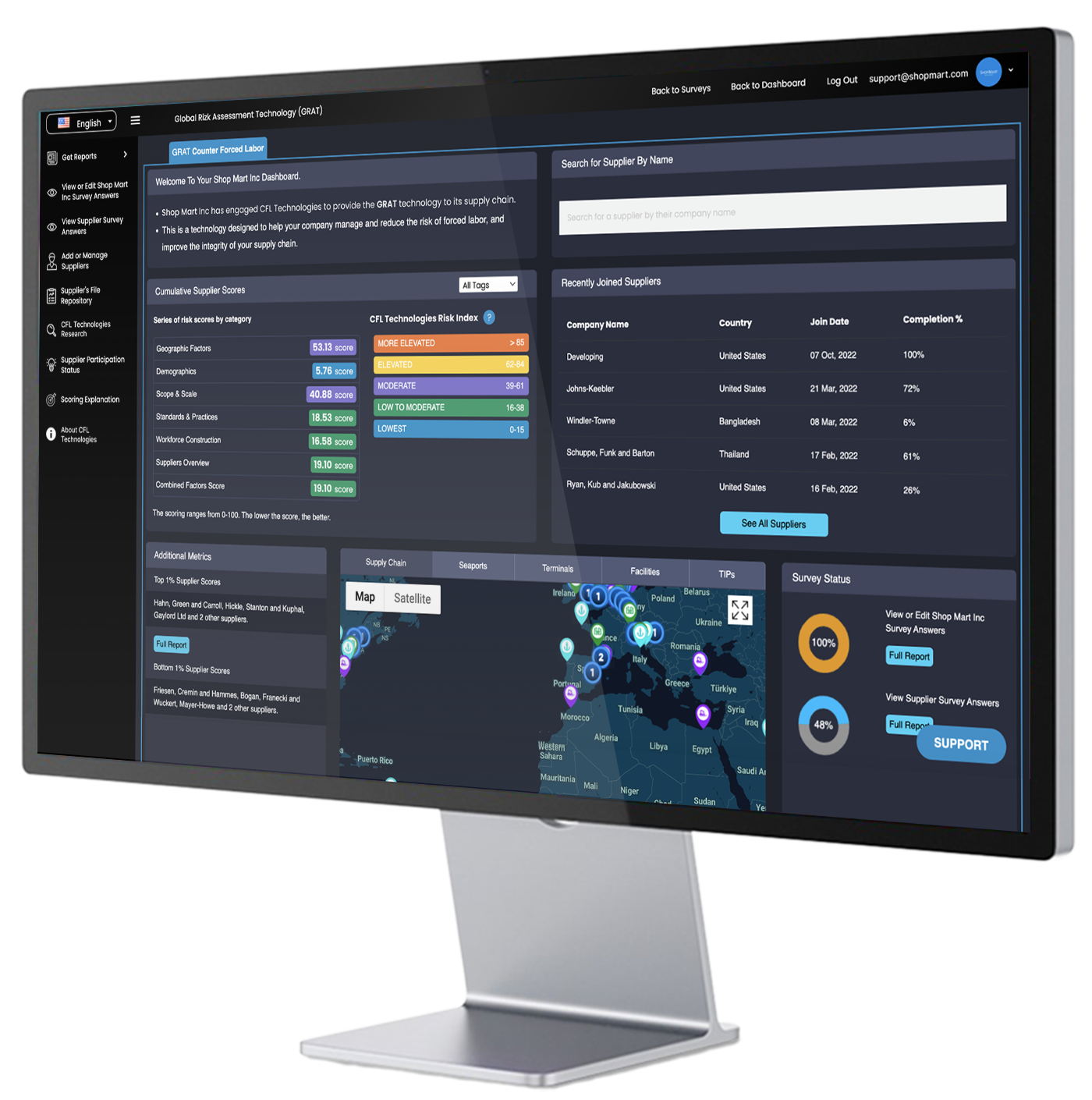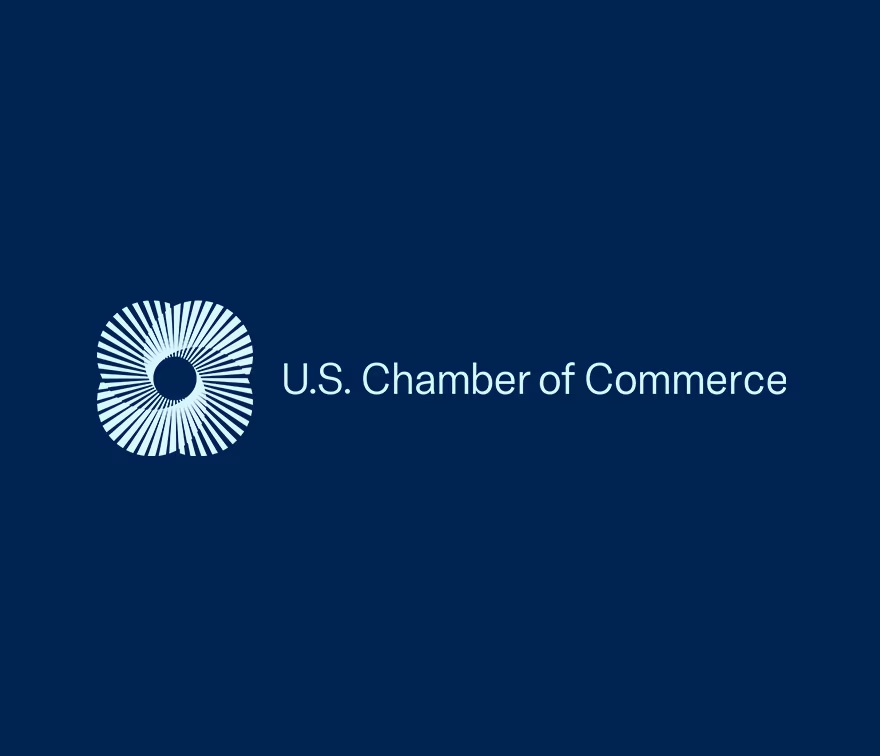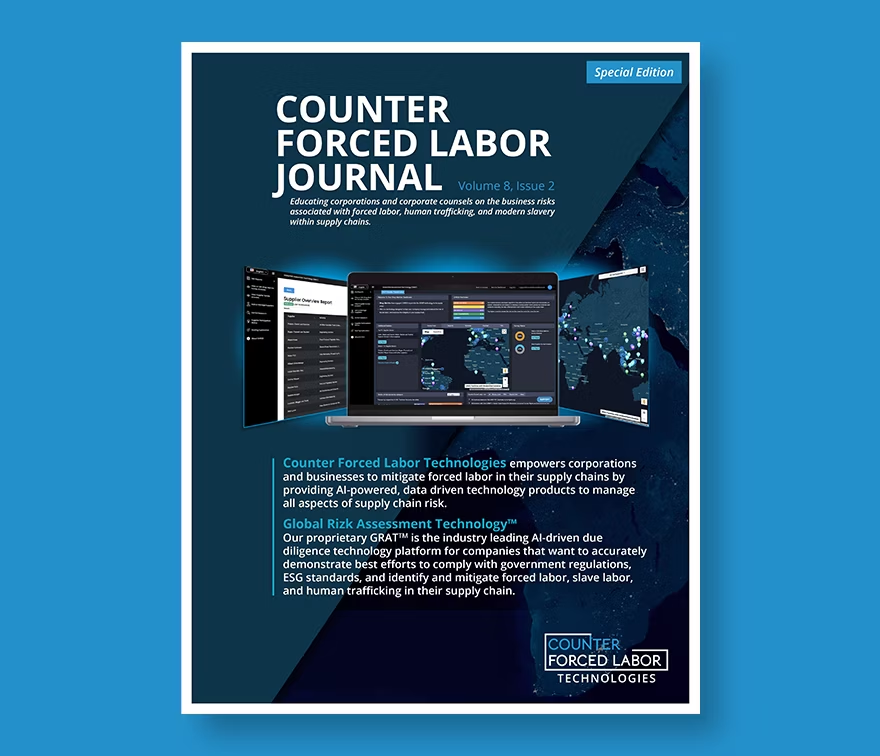Powering Ethical Supply Chains with AI Precision
We empower corporations and businesses to mitigate forced labor in their supply chains by providing AI-powered, data driven technology products to manage all aspects of supply chain risk.
Oops! Something went wrong while submitting the form.

Global Labor Status

Features
Digital wallets to direct bank
Pay Co’s API helps you launch your payment product faster—without the infrastructure headaches

Developer-First API
Our robust, well-documented API helps you bring payment features to market faster. No bottlenecks. No red tape.

Fast, Flexible Payments
From digital wallets to direct bank transfers, we support the methods your users prefer—with real-time processing.

Built for Trust
Enterprise-grade security and compliance mean your data—and your customers’—are protected every step of the way.

The Solution
Global Rizk Assessment Technology ™
Our proprietary GRAT™ is the leading AI-driven due diligence technology platform for companies that want to accurately demonstrate best efforts to comply with government regulations, ESG standards and identify and mitigate forced labor, slave labor, and human trafficking in their supply chain.
Analyze
Our powerful platform and intuitive dashboard make it easy to visualize and analyze your entire supply chain.
Monitor
GRAT™ empowers you to monitor your supply chain and generate comprehensive real-time reports with ease.
Mitigate
Easily develop strategies and methodologies to mitigate risk by identifying current threats, forecasting future ones,
Our Services
Why You Need GRAT™
AI Technology
Government Regulation
Environmental, Social, and Governance (ESG)
Risk Mitigation
Supply Chain Assessment
Corporate Social Responsibility (CSR)

Features
Digital wallets to direct bank
Pay Co’s API helps you launch your payment product faster—without the infrastructure headaches

Developer-First API
Our robust, well-documented API helps you bring payment features to market faster. No bottlenecks. No red tape.

Fast, Flexible Payments
From digital wallets to direct bank transfers, we support the methods your users prefer—with real-time processing.

Built for Trust
Enterprise-grade security and compliance mean your data—and your customers’—are protected every step of the way.

Services
Advisory and Custom Solutions
Our advisory and custom solutions teams complement GRAT™, our AI-powered technology platform, because we understand not every business is the same, and supply chain risk takes many forms. Our custom solutions team delivers tailored technologies—built to fit your framework, scale with your growth, and adapt to change. Have an idea? We’ll build it.
Advisory
For clients seeking deeper supply chain and operations intelligence, our team of experts offers detailed on-site assessments, transformative roadmaps and manuals, and a broad range of strategic project support.
Environmental, Social and Governance (ESG)
Our ESG advisory services give companies access to the insights they need—keeping them aligned with current regulations and measurements of ESG compliance.
Black Swan
Our Black Swan assessment services deliver deep insight into your entire supply chain, helping you identify vulnerabilities before the next disruption strikes.
Security Technology
LaborEye™
Combatting Forced Labor from Above
Autonomous Drones, Fixed Cameras, and Advanced AI
LaborEye is our proprietary artificial intelligence risk mitigation platform combining autonomous drones, fixed camera surveillance and advanced hardware monitoring with predictive analytics to detect and prevent forced labor in real-time.
3
4
9
7
9
0
5
2
6
9
3
6
4
8
2
3
7
5
4
8
%
3
4
9
7
9
0
5
2
6
3
1
6
4
8
2
3
7
5
4
8
%
3
4
9
7
9
0
5
2
6
2
0
6
4
8
2
3
7
5
4
8
%
Due Dilligence
Forced Labor Legislation
Worldwide laws and regulations are increasingly being implemented to combat forced labor and human trafficking.
Navigating these complex regulations can be challenging—CFL provides the expertise to help companies stay compliant.
Below are a few examples of prominent forced labor legislation:
Navigating these complex regulations can be challenging—CFL provides the expertise to help companies stay compliant.
Below are a few examples of prominent forced labor legislation:
Global
Human Rights Due Diligence Legislation (HRDD)
At the global level, new laws are coming into force to address the human rights accountability of private companies in their supply chains - known as anti-slavery legislation and human rights due diligence legislation (HRDD).
Canada
Fighting Against Forced Labour and Child Labour in Supply Chains Act (S-211 bill)
Effective January 1, 2024, Canada requires Canadian and foreign entities to submit an annual report to the Minister of Public Safety outlining their efforts to prevent forced and child labor in their supply chains.
European Union (EU)
Corporate Sustainability Due Diligence Directive (CSDDD)
The Corporate Sustainability Due Diligence Directive (CSDDD), passed in 2024, requires large companies operating in Europe to take responsibility for identifying and preventing risks of forced labor within their supply chains.
Partnerships
Trusted by the Fortune 1000
At Counter Forced Labor Technologies, our decades of experience, robust technology platform, mapping capabilities, reporting analytics, and extensive intelligence network are all part of why we are trusted by so many brands.
GRAT™
Demonstrate best efforts to comply with regulations and mitigate forced labor in your supply chain.
Reporting
Automatically generate reports that turn thousands of raw data points into actionable intelligence.
Mapping
Accurately map your entire supply chain from top to bottom with powerful insights.
Expertise
The most qualified and experienced team in the forced labor risk mitigation industry.
Intelligence Network
Formed over decades of service, our vetted assets give us a unique advantage over our competitors.
Research–Data–Trust
Everything we deploy is confidential, vetted, tested and secure.
GRAT™
Demonstrate best efforts to comply with regulations and mitigate forced labor in your supply chain.
Reporting
Automatically generate reports that turn thousands of raw data points into actionable intelligence.
Mapping
Accurately map your entire supply chain from top to bottom with powerful insights.
Expertise
The most qualified and experienced team in the forced labor risk mitigation industry.
Intelligence Network
Formed over decades of service, our vetted assets give us a unique advantage over our competitors.
Research–Data–Trust
Everything we deploy is confidential, vetted, tested and secure.
GRAT™
Demonstrate best efforts to comply with regulations and mitigate forced labor in your supply chain.
Reporting
Automatically generate reports that turn thousands of raw data points into actionable intelligence.
Mapping
Accurately map your entire supply chain from top to bottom with powerful insights.
Expertise
The most qualified and experienced team in the forced labor risk mitigation industry.
Intelligence Network
Formed over decades of service, our vetted assets give us a unique advantage over our competitors.
Research–Data–Trust
Everything we deploy is confidential, vetted, tested and secure.







